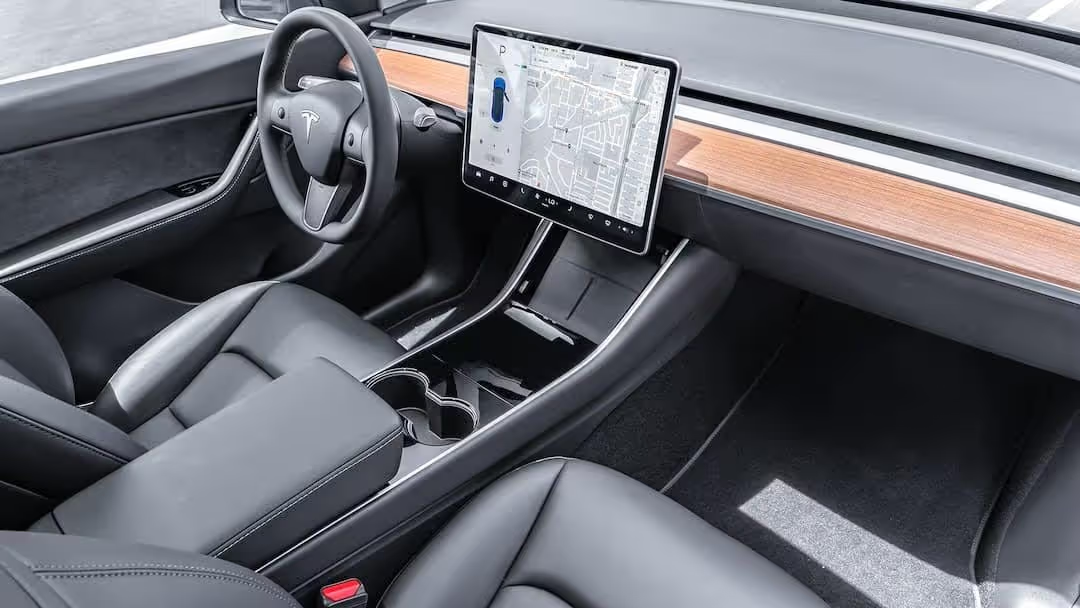In 2024, the automotive world stands on the brink of a transformation unlike any we’ve seen before. With the fusion of artificial intelligence (AI) and electric vehicle (EV) innovations, the dream of fully autonomous driving is fast becoming a reality. As TechCrunch reports, the AI market in the automotive industry is projected to reach a staggering $12 billion by 2025, highlighting the rapid integration of these technologies. In this article, we delve into how advancements in AI and EVs are not only revolutionizing autonomous driving but also redefining the future of mobility. Readers will discover the latest trends, key players, and actionable insights into this electrifying evolution.
The Role of AI in Autonomous Driving
How AI Drives the Future of Mobility
Artificial intelligence is the brain behind autonomous driving, enabling vehicles to perceive, analyze, and respond to their environment. Companies like Tesla and Waymo are at the forefront, utilizing AI to process vast amounts of data from sensors and cameras to ensure safe and efficient navigation.
- Perception and Decision-Making: AI systems interpret data from LIDAR, radar, and cameras to construct a comprehensive view of the vehicle’s surroundings.
- Machine Learning Algorithms: These algorithms learn from millions of miles of driving data to improve decision-making processes.
- Real-Time Processing: AI enables split-second decisions necessary for real-time traffic and obstacle management.
Key Players and Innovations
Tesla’s Autopilot and Full Self-Driving (FSD) are prime examples of AI-driven innovation. According to Electrek, the FSD beta has logged over 100 million miles, showcasing continuous improvement in its capabilities. Meanwhile, Waymo, a subsidiary of Alphabet, continues to expand its driverless taxi services across major U.S. cities, setting new standards in autonomous mobility.
Electric Vehicles: The Power Behind Autonomy
Why EVs Are Ideal for Autonomous Driving
Electric vehicles offer numerous advantages that make them ideal for autonomous driving technology:
- Battery Technology Advances: Modern EVs, such as those from Lucid Motors and Rivian, boast longer ranges and faster charging times, essential for continuous autonomous operation.
- Integrated Systems: EVs often feature advanced electronic architectures, allowing seamless integration with AI systems.
- Sustainability and Efficiency: As noted by Bloomberg Green, EVs contribute to reduced emissions, aligning with global sustainability goals.
The Impact of Battery Innovations
Battery technology is a critical enabler of autonomous EVs. With companies like BYD and Volkswagen investing heavily in solid-state batteries, which offer higher energy densities and faster charging, the potential for longer autonomous trips without frequent stops is within reach. According to the IEA, solid-state batteries could be commercially viable by 2025, accelerating the adoption of autonomous EVs.
Integrating AI and EVs: The Path to Autonomy
What to Expect in 2024
The convergence of AI and EV technologies is paving the way for significant milestones in autonomous driving:
- Improved Infrastructure: As reported by Reuters Mobility, governments worldwide are investing in smart infrastructure to support autonomous vehicles, from advanced traffic management systems to dedicated EV charging stations.
- Regulatory Developments: Countries like Germany and Japan are setting regulatory frameworks that support the deployment of autonomous vehicles, ensuring safety and standardization.
- Enhanced User Experience: AI-driven personalization in EVs could soon offer tailored in-cabin experiences, from entertainment to climate control, based on user preferences.
How to Prepare for the Autonomous Revolution
As consumers and businesses prepare for this shift, here are some actionable steps:
- Stay Informed: Follow industry leaders like Tesla, Hyundai, and Nissan for the latest updates in autonomous technologies.
- Consider Ownership Options: Evaluate the benefits of owning versus leasing an autonomous EV, taking into account factors like technology updates and depreciation.
- Explore Charging Solutions: Familiarize yourself with charging infrastructure options, such as home charging stations or public fast chargers, to ensure seamless EV operation.
Conclusion: Embracing the Autonomous Future
As we stand at the cusp of 2024, the integration of AI and EV innovations is set to redefine the landscape of autonomous driving. With advancements in battery technology and AI perception systems, the dream of self-driving cars is no longer a distant possibility but an imminent reality. As these technologies mature, they promise to deliver unprecedented levels of safety, efficiency, and sustainability in our daily commutes.
Are you ready to embrace this exciting new era of mobility? Stay tuned to the latest developments and consider how AI and EVs can transform your driving experience today. As we look to the future, the road ahead is not just autonomous—it’s electric and intelligent.

